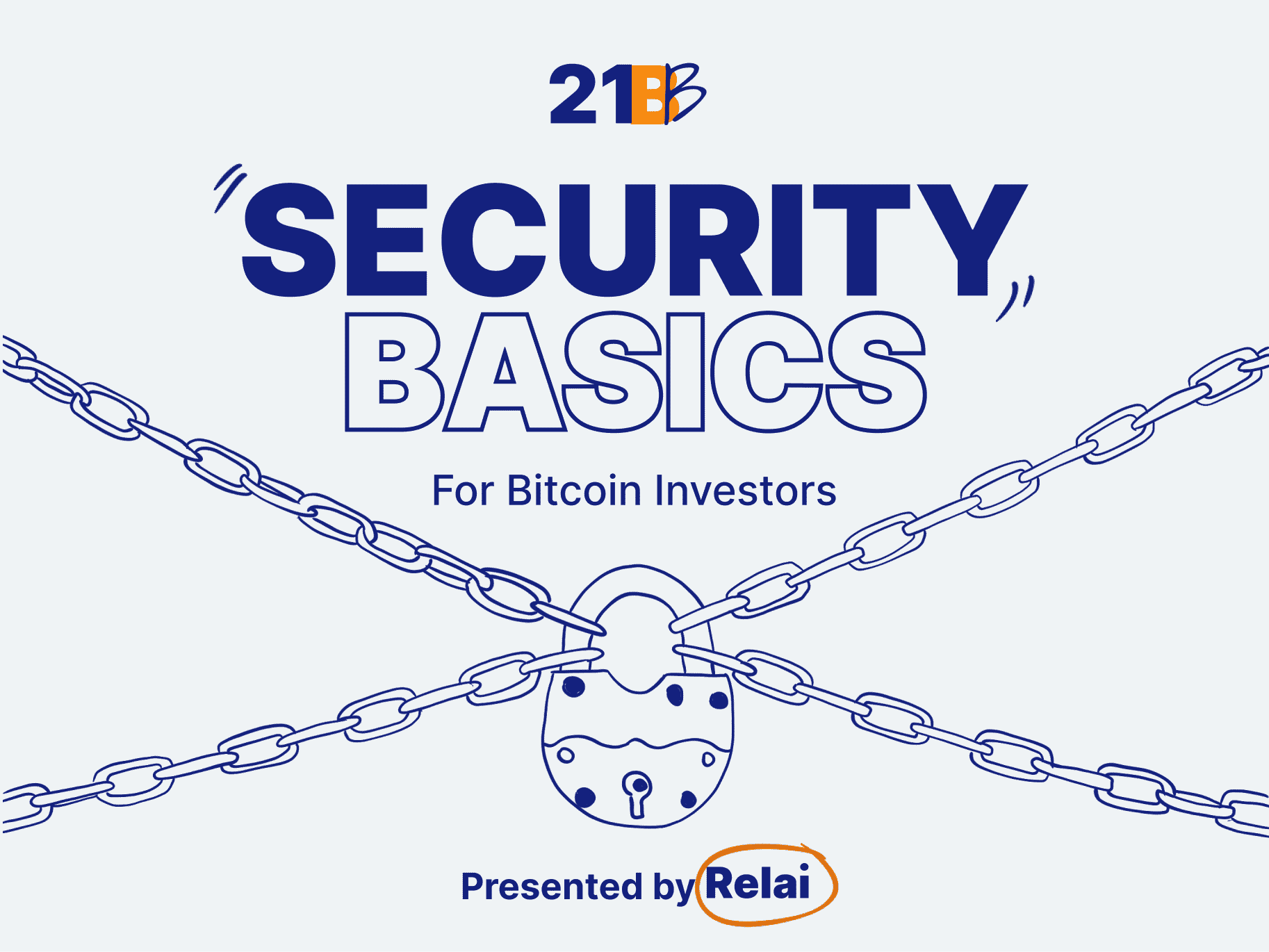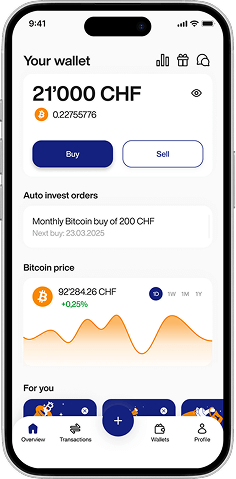Taking care of some basic (cyber)security aspects is key for everyone using or HODLing Bitcoin. The things you should consider going beyond just securing your bitcoin but also include other aspects of your daily online habits.
In this lesson, you learn the most important Bitcoin security tips and basics every Bitcoiner should know. From password managers, 2FA, and hardware wallets to learning about commons scams.
1. Use random, unique passwords (aka a password manager)
Most people use very simple or easy-to-guess passwords. And even worse: A lot of people use the same password everywhere. So what to do? You guessed it: The exact opposite. First, you need to make sure to use completely random passwords. Passwords that are impossible to guess and that not even you remember. So instead of Butterfly1999, you use a randomized combination of uppercase and lowercase letters, numbers, and symbols. Then you need to use a randomized password for every single service you use on the Internet. To pull that off, you need to use a password manager. There are many open-source options out there. Then, you only have to remember your master password for your manager, which of course should also be a random combination and (ideally) impossible to guess.
2. Activate 2FA everywhere
Using random, unique passwords for every service is the first step in the right direction. The next one is activating Two-Factor-Authentication, or short 2FA, wherever you can. This is the second layer of security because to access your Google account, e.g., you need to enter your password and a random code generated by an app like Google Authenticator or Authy. As with password managers, there are many options, and it is up to you which one you want to use. Don’t forget to back everything up when you set up your 2FAs for each service because you may need it when you lose your phone. Important: Refrain from using your phone number and text messaging as a 2FA method. It may be convenient, but it’s not very secure as you are an easy target for SMS-based man-in-the-middle attacks.
3. Get a YubiKey
You should consider going the extra mile with the first and second steps taken. Yubikeys are made by the Swedish company Yubico and are 100% worth their money. The concept is simple: You can activate a Yubikey as an additional layer of security (just like 2FA above) for services like password managers, your Google account, cryptocurrency exchanges, and more. You can find a complete list of supported services on their website. Personal recommendation: Order two YubiKey 5 NFC directly in the Yubico shop (NFC is also important to use with your Smartphone). Activate both wherever you can, put one on your keychain, and store the second one in a safe place if you lose the one on your keychain.
4. Take Care Of Your Bitcoin Recovery Phrase
Now that you have hopefully implemented the basic security steps above by using unique, strong passwords, using 2FA with an authenticator app wherever you can, and ideally using a YubiKey as an extra layer of security, you’re ready to move on to Bitcoin. Taking care of your Bitcoin Seed Phrase is the next step in your journey to becoming a security-wise bulletproof Bitcoiner. A steel plate like the Cryptotag Loki Relai Edition is perfect for this. The important part here is that you safely store your very personal 12-word recovery phrase, also known as seed phrase or mnemonic seed phrase. You have already learned about this in this article, so if you haven’t already done it, make sure to do it now.
5. Get and use a Hardware Wallet
Like the YubiKey, this step is not free, but it can make your Bitcoin life significantly easier – and more secure. You can use your Relai wallet for smaller amounts of BTC, and you should be fine when you implement step 4 of this guide. However, for larger amounts or if you just want to have complete peace of mind, we recommend that you should get a hardware wallet. The main benefit of using a hardware wallet is that it adds yet another layer of security. Your private keys are stored and encrypted on the hardware wallet, and you can still easily access your holdings by connecting the hardware wallet to your computer. A hardware wallet we can recommend is the BitBox02 by Swiss company Shift Crypto. It’s open-source, supports multisig offers a few neat additional features you don’t find in the competition’s products.

Double down on self-custody and accessibility. Securing your seed phrase has never been easier.
Store your backup words in virtually indestructible titanium. You can be sure that your backup words are still easily readable after 1, 5, or 25 years. The high-quality backup products work with Ledger, Trezor, BitBox, and many more.
Order your Cryptotag Loki Relai Edition now
6. Learn about common Scams, Phishing Attacks, etc
You should cultivate a healthy sense of paranoia. What may sound weird at first helps you to question things you see on a website or receive via email or text message. The thing is: No matter how many layers of security you add, if you fall prey to a well-made phishing email or trust someone running other forms of social engineering attacks, you might still lose your BTC and other confidential personal data. That’s why there is no way around educating yourself about common scams and tactics used by criminals on the Internet. There are a lot of good, free resources available and we recommend you take some time and look into those.
7. Don’t brag about your bitcoin
This last step may sound a bit weird, but bragging about being a bitcoin owner (or even worse: saying how much you own exactly) on social media or in real-life puts a target on your back. It’s always better to downplay or not mention it, especially when you own larger amounts. Of course, that doesn’t mean you’re not allowed to talk about Bitcoin with your friends anymore or interact with us on social media. But just be aware that the fewer people on the Internet (or in real life) know about how much BTC you store, the better.
Takeaways:
- Use unique passwords everywhere, and make sure they are a randomized combination of uppercase and lowercase letters, numbers, and symbols.
- Activate 2FA everywhere, and consider getting a Yubikey and a hardware wallet.
- Take care of safely storing your recovery phrase, learn about common scams, and don’t brag about your bitcoin holdings.
Disclaimer: Relai services are exclusively recommended for Swiss and Italian residents. None of this content constitutes investment advice. Always conduct your own research before investing in any digital asset.






